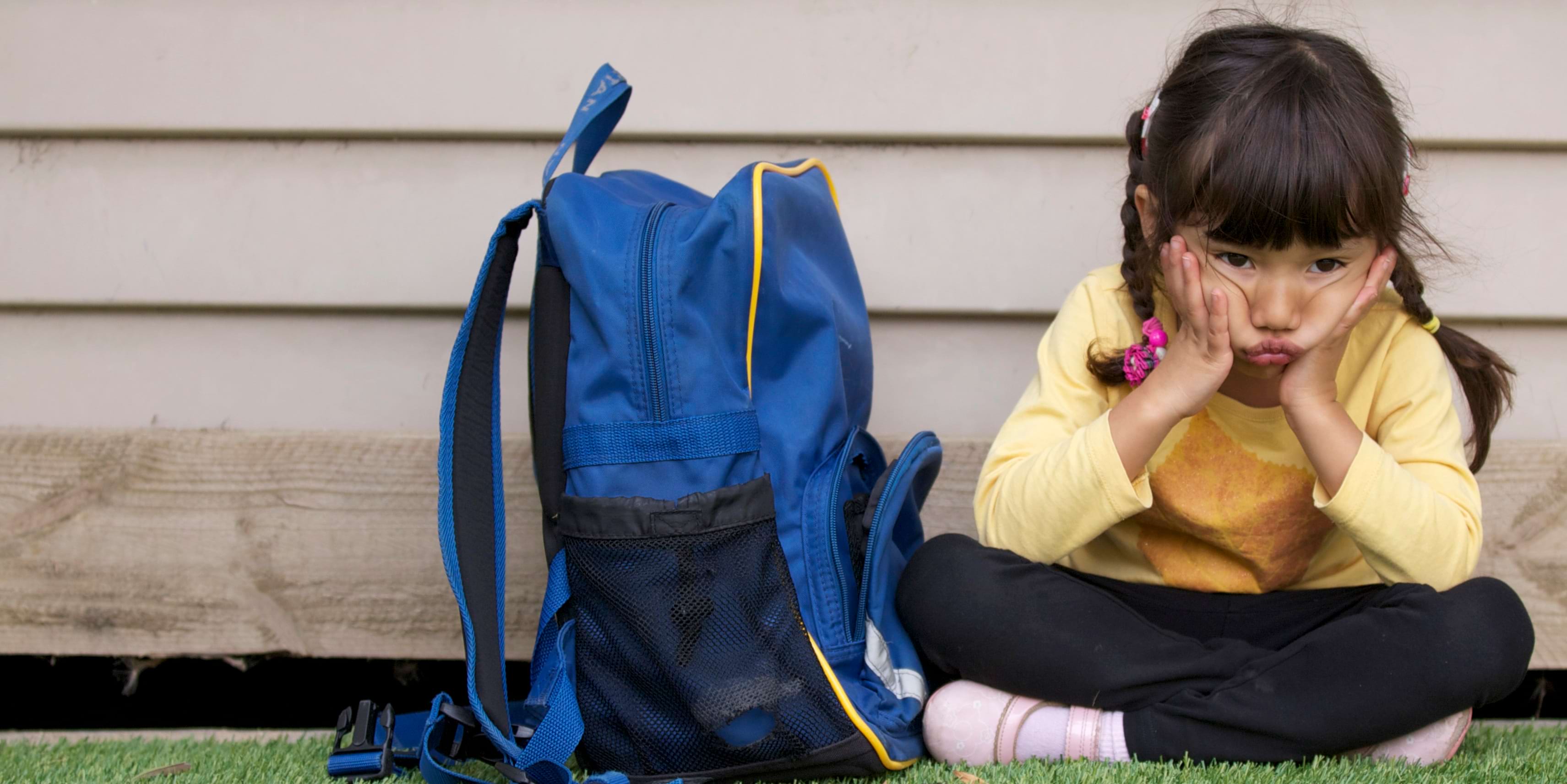Ah Tsui is a professional illustrator who inspired a group of young kids’ to express their big, big dreams for their future, and brought them to life in brilliant colors with his magic pen.
Three effective ways to avoid taking your stress out on your kids
Do parents always have to be uptight disciplinarians when it comes to dealing with disobedient children?

Punishment can cause irreparable damage to parent-child relationships. How do we determine when punishment for being disobedient is appropriate? Most children see their parents as the closest and most trusted people in the whole world. Any form of scolding, yelling or physical punishment will therefore cause irreparable damage to such a precious bond, and negatively affect the children’s physical and psychological development.
Verbal aggression may affect children's behaviour
Imagine every parent's worst nightmare: your kids start to cry or throw a tantrum, and there is literally nothing you can do to make them stop. It is not uncommon for parents to lose their temper in moments like this. The same may happen when your kids do not perform academically as well as you had expected. Parents who struggle with keeping their emotions in check often end up verbally or physically punishing their kids, and then feel guilty and upset about it afterwards.
All parents have moments when they blurt out aggressive words they ultimately regret, like “why are you so stupid?” or “I’m going to leave you behind if you keep crying!”. While young children may not understand what is behind their parents’ anger and criticism, they tend to suppress their own feelings and live in constant anxiety.
Some believe that scolding can hardly be regarded as a form of physical punishment, but this kind of verbal aggression actually brings negative effects to children that are not immediately recognisable, and these effects can be just as powerful as those of physical abuse. Studies have shown that the more children experience verbal aggression from their parents, the more likely they are to display negative emotions, strong feelings of frustration and low self-esteem, all of which are detrimental to their physical and psychological development.

The substantial harm of corporal punishment outweighs the benefits
Children are not pets or prisoners. It is a parent’s job to love and nurture them until they are able to look after themselves. However, most parents today have to juggle a lot of responsibilities in life, and with these responsibilities can come a lot of stress. When they are upset or stressed out, their kids naturally become the ones who have to endure their short fuses.
Many millennial parents may have experienced physical punishment from their own parents growing up, such as ear-twisting, face-slapping or even being beaten with random household items, but how many of them actually changed the way they acted as a result of such uncivilised punishment?
Children are God’s greatest gifts to parents. Take a look at the following three pieces of advice on how to keep your emotions under control, and provide a loving and nurturing environment for your kids.
Tolerate your children with love
Tolerance is the first rule of parenting. Always remember that being naughty is children’s natural way of exploring the world around them. Parents must allow their kids to make mistakes, and then encourage them to learn and grow from them.
Every child cries for a reason – they could be upset or experiencing emotions that they don’t know how to express. It is undeniable that parents these days are often stressed out, but it shouldn't be used as an excuse to justify any physical aggression directed towards their kids. Just remember – frightened children cry even louder! In a moment like this, tell yourself, “If I can tolerate the tremendous stress at work, I can surely tolerate my own kids!”.

Listen to your children with love
Don’t try to teach your kids anything when you are angry. What children need is discipline, not punishment. Parents should take reasonable measures to stop children’s inappropriate behaviour and listen to what they have to say.
Children do not throw a tantrum for no reason. Take a deep breath and calm yourself down. Then give your kid a big hug before asking with concern, “Are you upset? Do you want to tell Mommy and Daddy about it?” The idea is to let the child know that you are a good listener.
Appreciate your children with love
While it is true that exam results can show the path towards a child’s academic future, not every student is able to achieve what their parents have anticipated. Almost all parents like to compare their kids to others in terms of exam grades, rankings in their class and number of awards. This kind of comparison can have a negative impact on parent-child relationships, and could destroy the child’s confidence if not handled properly.
No one is perfect. What’s important is that you understand your children’s potential and learn to appreciate their strengths. Also, you should encourage them to further develop their abilities and boost their self-confidence. However, keep in mind that excessively high expectations can create performance anxiety, and their self-confidence may be undermined when they are not able to achieve these goals.
At the end of the day, we want our kids to be healthy and happy. No parent wants to physically or psychologically hurt their children in any way. Children are the greatest gifts we will ever be given, and a parent’s job is to nurture them so that they can grow up in a well-protected and joyful environment..
Information provided above is for reference only, please refer to the Conditions of Use of this site.

![[Be Inspired by Kids] Make a promise to help Kids draw their big, big dreams](/content/dam/sunlife/regional/hong-kong/images/dreams-220x220.jpg)


